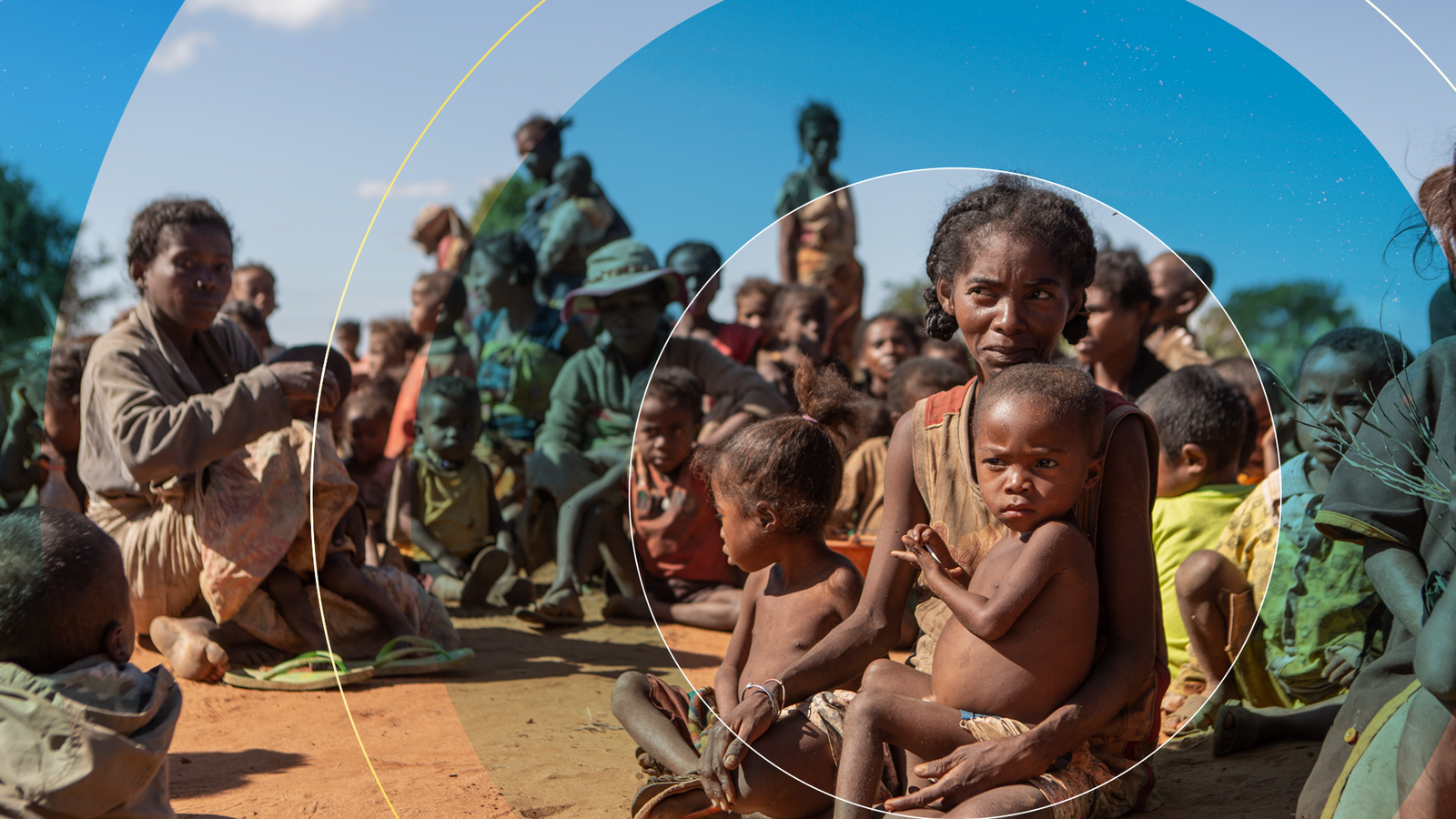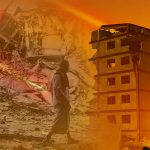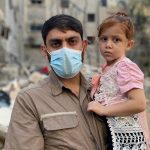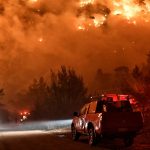Catastrophic levels of hunger in drought-stricken Madagascar should be a “wake up call” on global warming, the World Food Programme has said.
The country is teetering on the edge of the world’s first famine to be blamed on climate change.
At least 1.14 million people in southern Madagascar need emergency food, after four consecutive years of droughts wiped out harvests.
The United Nations’ World Food Programme (WFP) has declared the crisis is “because of climate change“.
Desperate residents have been relying on whatever they can find to survive, including raw cactus fruit, seeds, leaves and locusts, Shelley Thakral, WFP spokesperson for the southern Africa region told Sky News.
“Normally we see hunger driven by conflict,” she said. “Climate change is something we are all responsible for and it’s something we can alleviate and address”
“It’s a really important wake up call for all of us to really understand that if you are seeing wildfires in Europe or in north America and the earth heating up… the fact that a very hot day in some countries could [mean people elsewhere] lose their land, they lose their livelihood,” said Ms Thakral.
Madagascar is consistently ranked in the top ten most climate vulnerable nations. A major UN scientific report this month warned climate change from human activity had already increased extreme heat in the country and that drought is set to worsen as the planet warms further.
Please use Chrome browser for a more accessible video player
In Amboasary Atsimo, the epicentre of the crisis, roughly 14,000 are already in catastrophic conditions – the most severe of the five food insecurity levels. Acute malnutrition rates have reached an alarming 27%, and the region is “at risk of famine unless urgent steps are taken to prevent further deterioration” the WFP has said.
Although the crisis has not yet reached the threshold for “famine” classification, it is the first time the WFP has squarely pointed the finger for such a situation at climate change.
It fears the already terrible conditions will intensify in the “lean season”, which runs from September to March, when food stocks run low. The number of people facing severe starvation is expected to hit 1.31 million by December 2021.
“Right now Madagascar is attacked all sides,” Jean-Benoit Manhes, UNICEF’s Madagascar deputy representative told Sky News.
He said droughts that used to happen every three years now hit every year, rodents fleeing deforested areas are bringing plague epidemics, cyclone patterns have changed, rains have become floods because of deforestation, and the COVID-19 pandemic has compounded many problems.
“It’s a perfect storm right now where an island which is already poor and vulnerable is going to be more poor and vulnerable, with little direct responsibility [for] it because [Madagascar is a] little producer of CO2,” Mr Manhes said.
Subscribe to ClimateCast on Spotify, Apple Podcasts, or Spreaker.






















